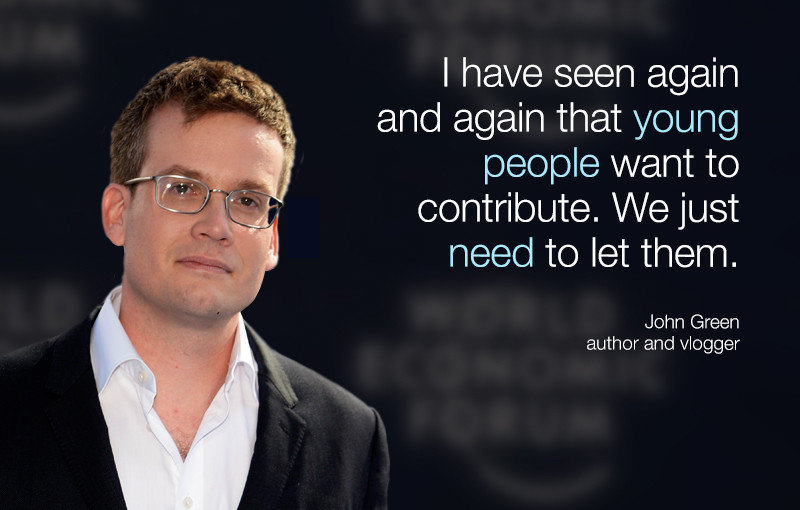Why the word millennial makes me cringe

Young people. Also known as people. Image: REUTERS/Lucy Nicholson

Get involved with our crowdsourced digital platform to deliver impact at scale
Stay up to date:
Arts and Culture
I’m often asked how to communicate with young people — I guess because my novels and YouTube videos have disproportionately young audiences. The fact that I’m being asked is part of the problem, really — it assumes that so-called “millennials” need a translator — but I believe that when we listen to young people and don’t condescend to them, we don’t need translators at all. There is no such thing as “speaking Millennial,” and anyone who says otherwise is probably trying to sell you something.
But let’s begin with that word, millennials, which these days we see everywhere. How do we market to millennials? How will millennials get their news, and use transportation, and eat breakfast? How will the Internet affect the social and political concerns of millennials? And so on, ad nauseum. I cringe a little every time I see the word “millennial,” and not least because it rarely seems to be actual millennials using it. This is not a coincidence: The word “millennial,” as a descriptor of a demographic group, was coined by two men born just after World War II. Generation X named themselves Generation X. Millennials were named by Baby Boomers.
Social media isn’t all narcissism and navel-gazing
I think this is part of a much larger failure to listen to young people and take them seriously. I often hear complaints that young people are disinterested, or self-obsessed, that they prattle on incessantly on social media but that’s it all mere narcissism and naval-gazing. But that hasn’t been my experience with young people (or social media). When I made a video about understanding sovereign budget deficits and debt to GDP ratio, more than 700,000 people watched it—almost all of them millennials. Whether the subject is American health care costs, early Islamic history, or the Higgs Boson, online video in the educational space has grown into a huge business simply by treating young people as the intelligent and critical thinkers we know them to be.

I also find myself with precious little patience for arguments that millennials care only for themselves. Every year, my brother and I host a YouTube-based charity event called the Project for Awesome, which this year raised more than $1,500,000 in a week for organizations including Save the Children and the UN’s Refugee Agency. Most of the people who donated were young — the average donation was $35—and thousands more young people have made Project for Awesome videos in support of their favorite charities.
When I was a kid — in the early 1990s — I often hung out in online discussion forums debating the literary merits of various science fiction novels. Some of the stuff I said was silly; too often I found myself staying up late arguing over arcana; and I often ignored my homework in favor of online chatting. But looking back, those conversations were tremendously important to me, because no one knew I was a teen. Online (and only online), I was treated as a full and equal citizen of the world, whose thoughts and feelings were valued.
At its best, the Internet still provides those gifts to young people — it’s a place where they can be participants in public discourse. When we listen to young people, and when we acknowledge them as fully human, they respond in kind —by listening and acknowledging us in return. The challenges and opportunities before humans right now — from climate change to the global refugee crisis to expanding access to technology and education — demand the whole world’s attention. In my work, I have seen again and again that young people want to contribute. We just need to let them.
Author: John Green is an author and vlogger. He is participating in the World Economic Forum’s Annual Meeting in Davos.
Don't miss any update on this topic
Create a free account and access your personalized content collection with our latest publications and analyses.
License and Republishing
World Economic Forum articles may be republished in accordance with the Creative Commons Attribution-NonCommercial-NoDerivatives 4.0 International Public License, and in accordance with our Terms of Use.
The views expressed in this article are those of the author alone and not the World Economic Forum.
Related topics:
The Agenda Weekly
A weekly update of the most important issues driving the global agenda
You can unsubscribe at any time using the link in our emails. For more details, review our privacy policy.
More on Arts and CultureSee all
Joseph Fowler and Amilcar Vargas
April 18, 2024
Robin Pomeroy and Sophia Akram
April 8, 2024
Faisal Kazim
April 3, 2024
Robin Pomeroy and Linda Lacina
March 28, 2024






